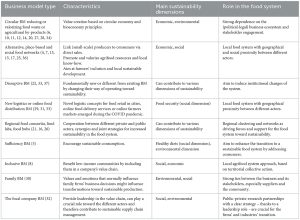Investing in Foreign Stocks – A Guide for Global Diversification
3 min read
International stocks can help increase returns and diversify risk in your portfolio, but they may expose you to currency fluctuations and geopolitical unrest.
Financial advisors typically suggest allocating between 5-15% of portfolio to foreign stocks for conservative investors and up to 25% for aggressive ones. Global markets present plenty of opportunities.
Diversification
Diversification is an essential practice to help manage risk in investments. You can apply it across asset classes; when it comes to stocks, this means owning shares from different companies (small, mid and large), industries (technology, consumer goods, healthcare etc) and market capitalization sizes (small mid large).
Investors should diversify both by industry and location to reduce the impact of negative news or events that could cause their portfolios to take a sudden downturn.
Diversification decisions must take the length of your investment horizon into account; the longer you can keep your money invested, the less impact a temporary setback may have on its return.
Access to Emerging Markets
Many investors tend to place large bets on certain countries while overlooking the advantages of global diversification. A long term strategy which incorporates allocations for international and emerging market investments may provide more consistent returns over time.
Emerging markets attract investors due to their substantial economic growth potential and relatively lower valuations, as well as powerful tailwinds like population growth and increasing consumer demand that offer a variety of investment opportunities.
However, investing in emerging markets poses more risk than other investments due to economic volatility, regulatory uncertainty and political unpredictability. One way of accessing emerging market investments is via exchange-traded funds (ETFs) or mutual funds with broad portfolio holdings – eliminating the need for extensive research on individual markets.
Currency Fluctuations
Currency fluctuations have an immense effect on numerous variables, such as the value of investments denominated in foreign currencies when converted back to domestic ones by investors. Just like any commodity, its worth in the foreign exchange market determines its true worth.
Currency fluctuations can have an enormous effect on investments, underlying assets and global economies; to manage currency risk effectively diversification is key.
Many American companies, for instance, generate much of their sales and profits overseas. When the dollar strengthens, their overseas sales translates to lower net returns for American investors when converted back to dollars; however, these firms typically hedge their exposure to currency trends using various techniques so as to protect investor returns.
Political Instability
As the global economy becomes more integrated, a global perspective has become essential for many investors. Foreign stocks provide investors with invaluable diversification and the potential for lucrative returns; however, like any investment, international ones require patience and long-term planning horizon.
Some foreign companies operate from countries with rapidly growing populations and economies that can capitalize on increased consumer demand. Shoprite Holdings of South Africa, for example, has taken advantage of population expansion and economic upswings on the continent to experience steady growth over time.
Political unrest in a foreign country can undermine the value of your investments by hindering economic expansion and undermining investor trust, with reporting requirements differing widely across nations making it harder to get an accurate snapshot of their finances. Furthermore, taxes could impact returns if selling shares in a foreign market.







